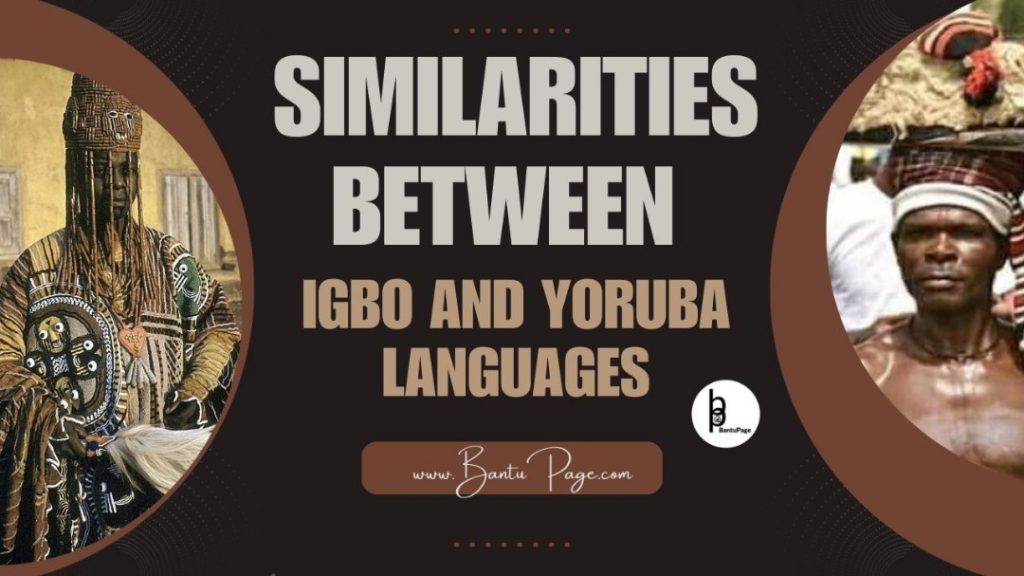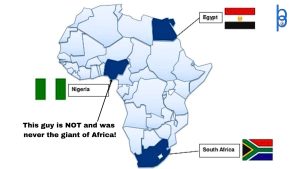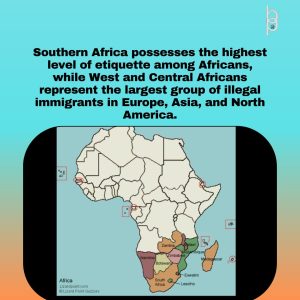
Examining the parallels between Yoruba and Igbo languages
Introduction
Language is a remarkable aspect of human culture, serving as a tool for communication, identity, and expression. Within Nigeria, there are over 500 recognised languages, each with its own unique features and characteristics. Our cultures and traditions are imbibed in our language; it shows historical connections between people.
As soon as the British left Nigeria, ethnic sectarianism emerged in the nation they had brought together. Why? Because we were not a nation, the British forced us together; however, not being a nation does not disconnect the historical connection usually present with people of proximal cohabitation. There is so much that connects us than not, but politics in Nigeria plays with an undertone of ethnic sectarianism.
This writing aims to delve into the similarities between two prominent Nigerian languages, Igbo and Yoruba, exploring their commonalities in terms of phonetics, grammar, and vocabulary. By examining these similarities, we can gain a deeper understanding of the linguistic landscape of Nigeria and appreciate the rich diversity within the country. Despite Igbo and Yoruba being chosen for this test, the similarities are not limited to the two languages; they spread way further than you can imagine. At no point are we trying to infer that Igbo and Yoruba have a singular originator; what we are doing here is bringing to light a possible connection that may infer some sort of relationship between the two neighbours, often at loggerheads.
Thesis Statement
Despite being distinct languages, Igbo and Yoruba share several similarities in terms of phonetics, grammar, and vocabulary, which can be attributed to historical and cultural interactions between the two ethnic groups.
Phonetics
One of the striking similarities between Igbo and Yoruba lies in their phonetic systems. Both languages utilise tonal accents to convey meaning, wherein the pitch at which a word is spoken affects its interpretation. The presence of tonal accents reflects the importance of intonation in both languages and highlights their shared emphasis on precise pronunciation.
Grammar
In terms of grammar, Igbo and Yoruba exhibit comparable structures and syntactical patterns. Both languages possess subject-verb-object (SVO) word order, with slight variations depending on context. Additionally, both languages make extensive use of verb conjugation and inflection to indicate tense, aspect, and mood. The existence of a common SVO structure and the reliance on verb morphology suggest a shared linguistic heritage.
Vocabulary
While Igbo and Yoruba have distinct vocabularies specific to their respective cultures, they nevertheless share numerous lexical items. This can be attributed to historical interactions and borrowings between the two ethnic groups. Many basic words for kinship terms, body parts, animals, and everyday objects bear resemblance to or have cognates in both languages. The presence of shared vocabulary hints at a historical connection and ongoing cultural exchange between the Igbo and Yoruba communities.
Igbo and Yoruba Meaning
- Amen: Amen, which is actually the Hebrew word for “so shall it be,” is generally said at the end or during prayers. Its direct interpretation in Yoruba is “ase”while in Igbo, it is “ise”, but with different pronunciations.
- Ear: This part of the body is called “nti instandard Igbo and “eti in
- Fever: A fever is called “iba inboth Yoruba and Igbo, but with a different intonation given that most Niger-Congo languages, of which Igbo and Yoruba are part, are tonal languages.
- God/Deity: Orisa isthe name of a deity or god in Yoruba, but Olisa isa name for God in Igbo, with the “R” and “L” differentiating the two languages.
- Slave: The textbook Igbo word for slave is “Oru,whilethe Yoruba word for it is “eru”.
- —Ewurẹ.—Goat
- Torotoro—Tolotolo—Turkey
- Ọnu.—Ẹnu. —Mouth
- —Agbon.—Chin
- —Imu—. Nose
- Gbọrọ. —Gbọ.— Hear
- Atọ.— Ẹta.— Three
- —Kini. —What
- Ala—. Ilẹ.— Land
- —Omi.—Water
- —Okuta.—Stone
- —Ifufe.—Wind
- —Oyi.—Cold
- —ka. —Corn
- —Ibi.—Place
- —Ifa.—Divination
- Ulọ. —Ile.— House
- —Ere.—Gain
- Ọgbọr—. Ẹgbẹ.— Age-mate
- Akpa—Apo— Bag
- Akpati—Apoti—Box
Conclusion
In conclusion, the Igbo and Yoruba languages exhibit significant similarities rooted in their historical, cultural, and geographical interactions. The phonetic system, grammar structure, and shared vocabulary demonstrate the interconnectedness of these two languages. By recognising and appreciating these linguistic similarities, we not only gain a deeper understanding of the rich cultural tapestry of Nigeria but also foster a sense of unity among its diverse ethnic groups. Language serves as a bridge that connects people, and by celebrating these commonalities, we can promote dialogue, understanding, and appreciation across cultures.
By Mayowa Yusuf OYEYEMI





